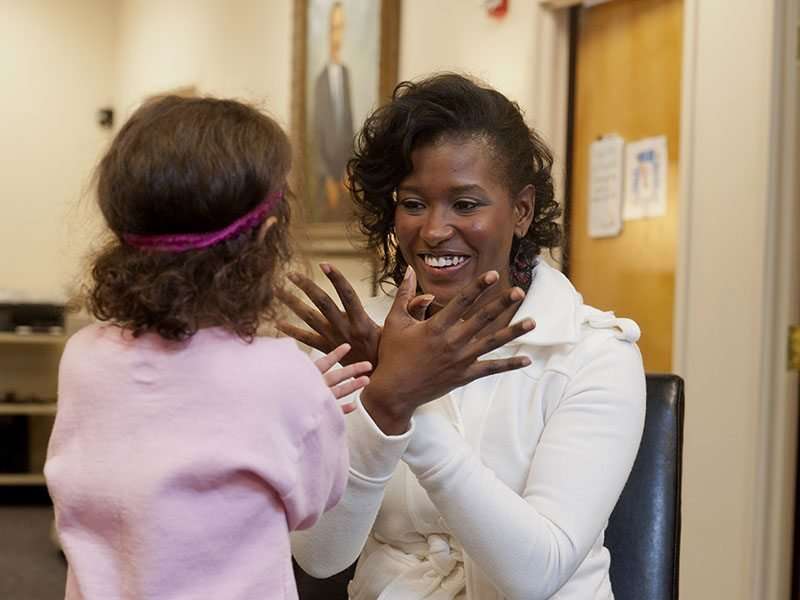Researchers find SafeCare parent-training program improves stress biomarkers among caregivers

SafeCare, a parenting program focused on reducing child abuse and neglect, has been found to decrease physiological indicators of stress, according to researchers in the Georgia State University School of Public Health.
SafeCare, developed in 1979 by Georgia State faculty member John Lutzker, has previously been found to reduce self-reported stress among parents, but this pilot study is the first to examine the program's effect on stress biomarkers.
"Most prior studies of SafeCare and similar programs have been focused on outcomes for the children, which of course makes sense," says study author Shannon Self-Brown, professor in the School of Public Health and associate director for research and development in the National SafeCare Training and Research Center (NSTRC). "We wanted to better understand how effective this training is for parents, and that meant establishing a more reliable benchmark than self-reported data."
The results of the study were published in Social Work in Health Care. The researchers recruited 18 mothers to participate in the SafeCare program. The intervention included six home visits focused on building behavioral skills to promote positive parent-child interactions and to reduce problematic child behavior.
Prior to the intervention and one week after its completion, researchers obtained saliva samples to analyze for stress biomarkers, including cortisol, alpha-amylase and dihydroepiandrosterone. They also collected and measured cortisol levels in hair samples as an indicator of chronic stress.
Participants provided information on their self-reported stress levels, mental health symptoms and traumatic life events.
Post-intervention, the researchers found the study participants, on average, had significant decreases in self-reported stress as well as improvements in their salivary levels of cortisol and alpha-amylase. Participants who had high cortisol levels at baseline were within normal limits after completion of the SafeCare program.
Self-Brown says she is excited by the results and plans to continue to explore how intervention programs such as SafeCare affect biobehavioral stress.
The NSTRC was established in 2007 and is housed in the university's Mark Chaffin Center for Healthy Development. The center is engaged in research efforts to improve the training, implementation and translation of the SafeCare model.




















